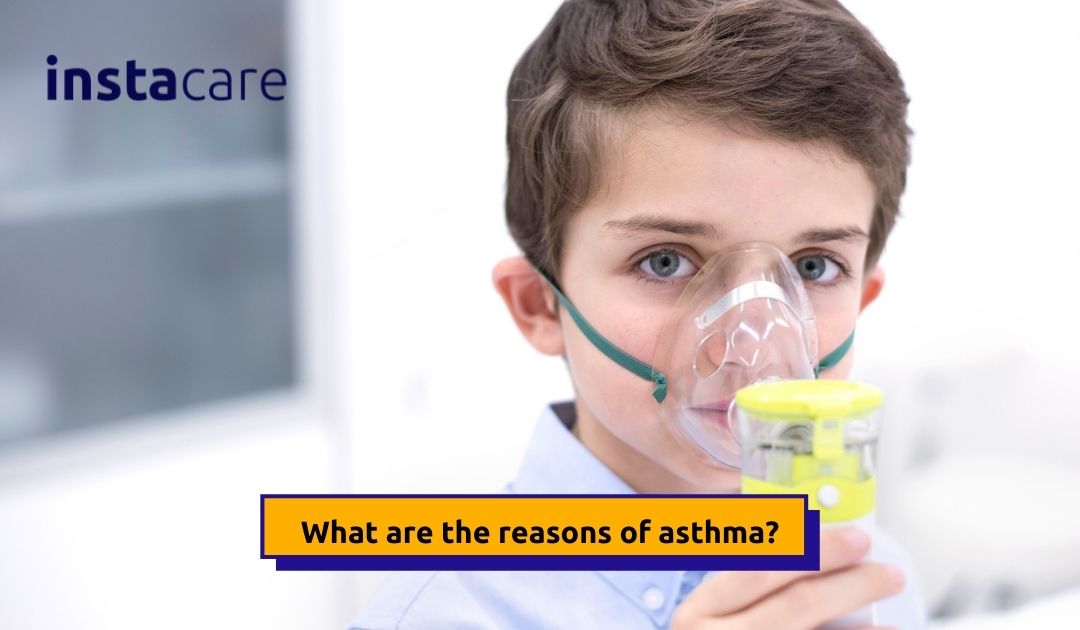Asthma- a chronic condition
Asthma is the constriction of your bronchioles that occurs due to the response or overactivity of your immune system, due to which you face difficulty in breathing. It is a chronic condition that mostly starts in childhood. At times, it gets better by the time, but it can also worsen as you age. Coping with asthma can be problematic because there is no cure until now. However, with proper management, it can be prevented and controlled. Asthma may also affect your day-to-day activities. You may also face difficulty in doing physical exercise, walking, or even talking or eating food. One of the essential things is not to prolong the symptoms. Take the rescue inhaler, as prescribed by your healthcare provider as soon as you feel the symptoms coming.
Signs and Symptoms
The signs and symptoms of asthma are:
- Cough especially at night, during or after exercise, or while laughing
- Difficulty breathing
- Whistling sounds from the chest known as wheezing
- Chest tightness
- Fatigue
- Anxiousness
- Panic and anxiety
Not everyone may have the same symptoms of asthma. Some people may only have a cough, while some may have wheezing and difficulty breathing. If you have to face these symptoms consult with the best pulmonologist in Islamabad through InstaCare.
Types
The most common type of asthma is bronchial asthma. But there are many other types too like as follows.
Childhood asthma
It is the one that starts when you are a child. Usually, it gets better as you age.
Adult-onset asthma
It starts when you are above the age of 20. You may never have had symptoms before.
Allergy induced asthma
It is also known as extrinsic asthma. In it, the allergy exacerbates asthma, which occurs as a response to allergens like pollens, animal dander, certain foods, and much more. Moreover, allergy-induced asthma is mostly dependent upon seasons.
Non-allergic asthma
It is a type of asthma that occurs due to certain irritants like smoke, burning wood, or perfumes. But it is not accompanied by an allergy. The signs and symptoms of allergy are runny noses, postnatal drip, and runny eyes.
Occupational asthma
It is a type of asthma that exacerbates due to exposure to certain irritants at your workplace. They may include dust, dyes, gas fumes, and much more.
Exercise-induced bronchoconstriction
Previously it was known as exercise-induced asthma. It occurs after 10 to 15 minutes of exercise. Your healthcare provider may ask you to take the inhaler 15 to 20 minutes prior to exercise. Having this kind of asthma does not mean that you stop doing exercise. You must consult with your doctor about it. They will help you in coping up with it so that you do not miss your daily physical activity.
View More: Foods That Help Broken Bones Heal Faster and Give Strength
Aspirin-induced asthma
Aspirin or other non-steroidal anti-inflammatory drugs, also known as painkillers work by stopping the pain pathway, which can eventually cause bronchoconstriction. Therefore, asthmatic people must take those drugs with caution, as they can exacerbate it, making it difficult for you to breathe.
Nocturnal asthma
Nocturnal refers tonight. Therefore, it is one that starts at that time. Usually, it occurs due to gastric acid reflux, dust in bedding, pet dander, or dust mites where you sleep. You may wake up due to a cough, and it becomes difficult to lie straight while sleeping. At times, your body's natural sleep cycle can also trigger nocturnal asthma. Most asthmatic people, therefore, complain about sleepless nights during an acute attack.
Cough-variant asthma
It is a type of asthma that represents a cough only. The person may not have other classic symptoms of asthma-like wheezing or difficulty in breathing, and may only complain about a dry cough. If left untreated, it can flare up, resulting in an emergency. Therefore, if you have a complaint of cough, do not delay your visit to the healthcare provider.
Conclusion
Living with asthma can be difficult at times. But you must know the trigger that exacerbates it. So you can avoid them and keep your asthma under control. Moreover, do not leave your inhalers without consulting with your healthcare provider first. If you face difficulty in breathing, you must consult with the best general physician in Pakistan through InstaCare.




